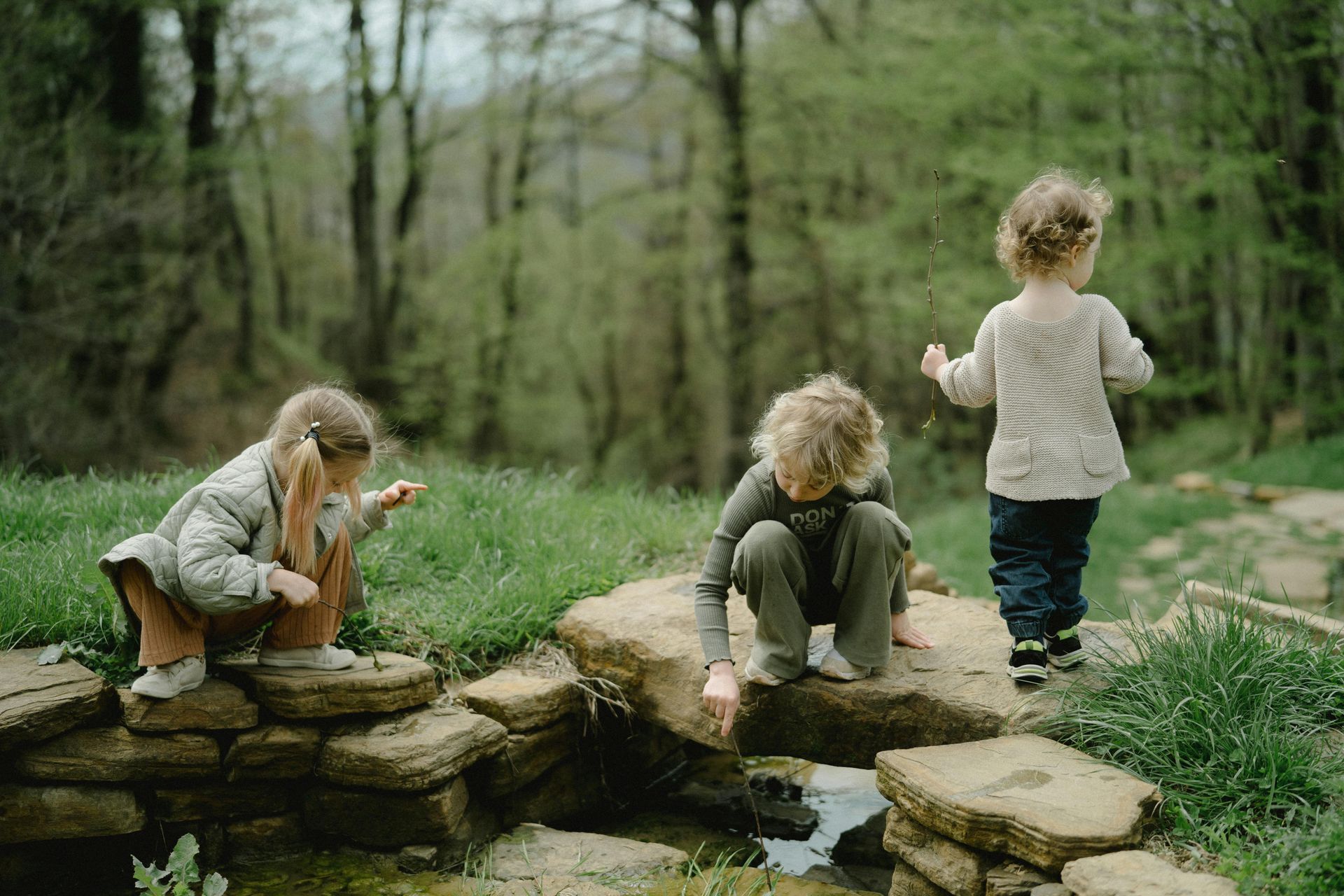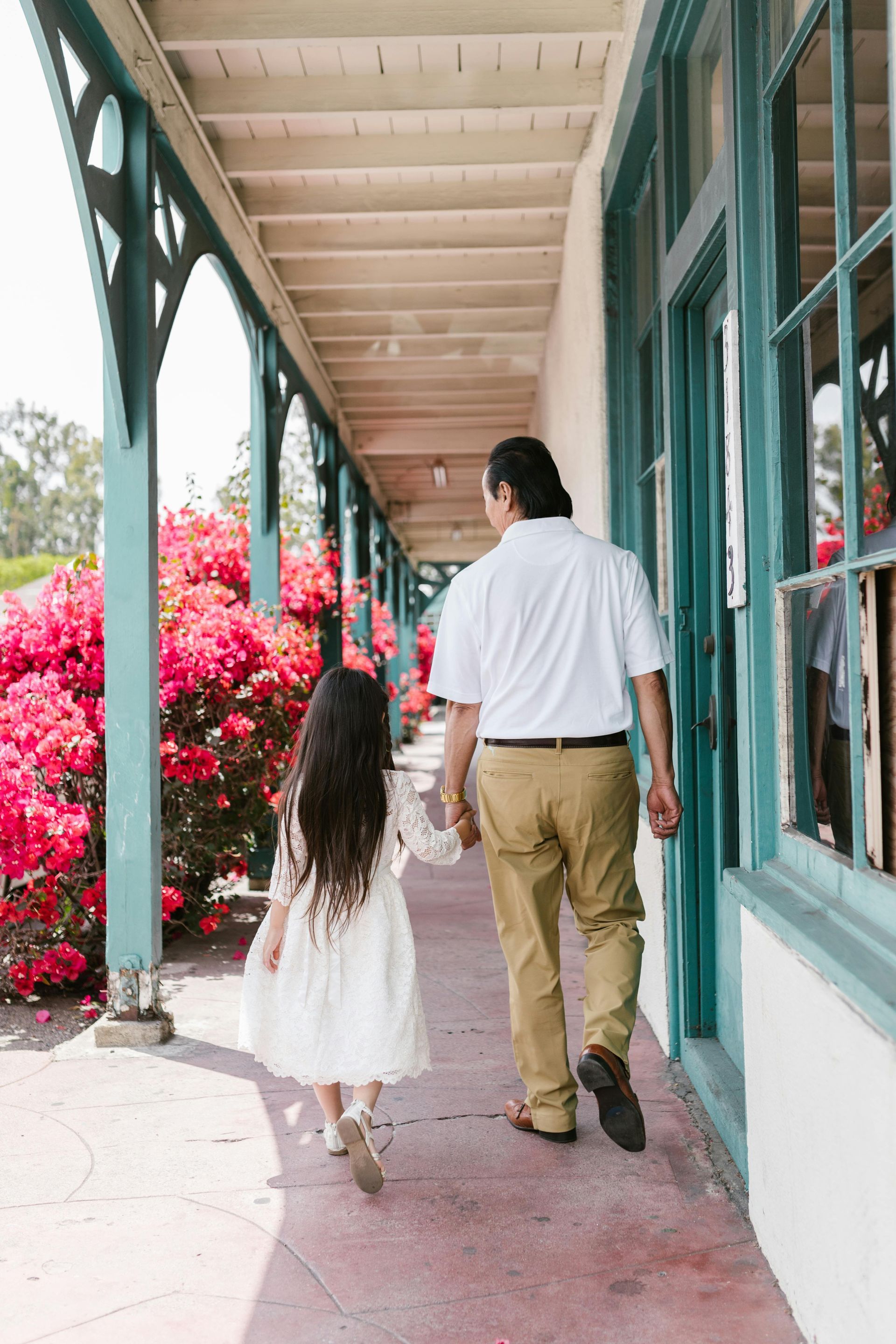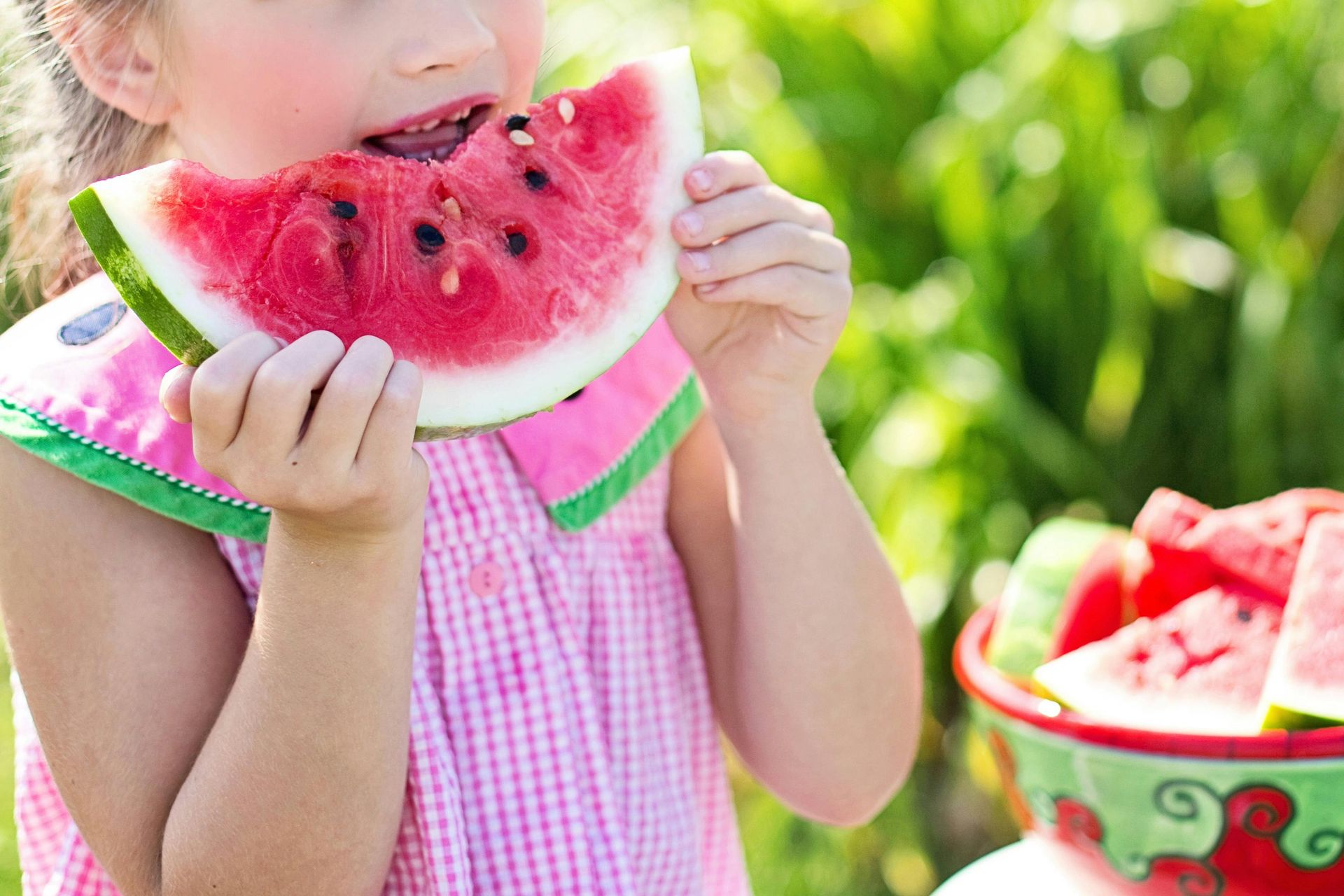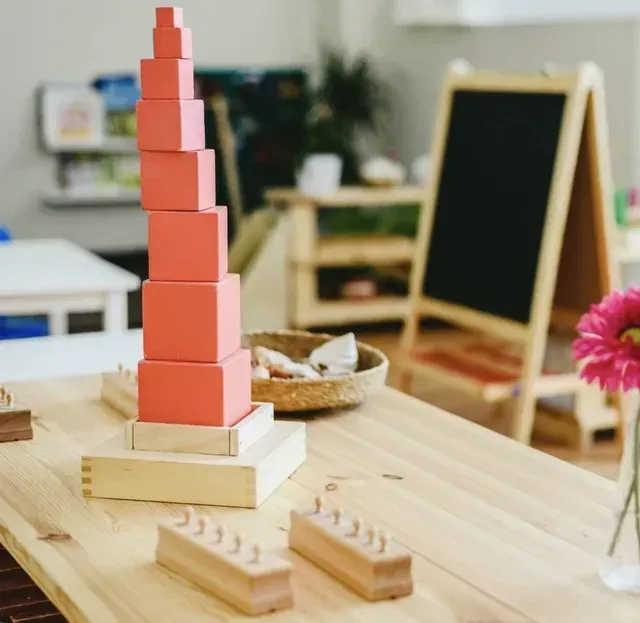Blog

One of the many beautiful and empowering aspects of Montessori education is how it helps children understand themselves as valued members of a community. A key way this happens is through Care of the Environment, a form of Practical Life work that provides children with the opportunity to tend to the spaces they live in each day. By participating in this care, children begin to feel at home in their classroom, school, and community. They feel a sense of ownership and take pride in their surroundings, and in the process, develop a deep sense of responsibility and connection. The Outdoor Environment When considering the children’s environment, we're not just referring to indoor spaces. In Montessori, the outdoor environment is not an afterthought. Instead, we consider the outdoors to be a natural and essential extension of the prepared indoor space. For young children, who are absorbing everything from the world around them, the time spent outdoors supports development in profound and lasting ways. For older children and adolescents, outdoor spaces can be a place for self-regulation and deep focus. Now more than ever, when children tend to spend increasing amounts of time indoors, reconnecting with natural spaces is vital for physical, emotional, and cognitive health. Why Being Outdoors Matters Research, including the work of Richard Louv in The Last Child in the Woods, highlights a growing body of evidence that time spent in nature is critical to the healthy development of both children and adults. In Montessori, we recognize that outdoor time is not a break from learning. Rather, the natural world is a powerful space for movement, language, social development, and sensory integration. Time outdoors is learning time. Young children are in the midst of sensitive periods for order, language, movement, and sensory refinement. These windows of opportunity allow for an intense connection with nature that nourishes the whole child. Plus, the natural world’s beauty, order, and rhythm speak to our deepest human tendencies: to explore, understand, and belong. The Adults’ Role Outside Outdoor spaces become a rich environment for observation, guidance, and connection. Children are often more socially expressive outdoors, making this a critical time for observing group dynamics and supporting social-emotional growth. It’s also a time to model joyful, playful behavior. Children need to see that being human includes lightness and laughter, and outdoor time offers the perfect opportunity for us to play alongside children while still maintaining an appropriate level of guidance. We can also help children understand that different environments call for different behaviors. What is appropriate outdoors differs from what is expected indoors. As children gain different experiences, they come to understand how to conduct themselves with grace and courtesy on a woodland trail and a garden bed, or how to navigate the intricacies of fort building and group game dynamics. Montessori children learn to move through different scenes and scenarios with increasing awareness, sensitivity, and confidence. Setting Up Outdoor Spaces We want our outdoor spaces to feel like a true extension of our classrooms, not a break from them. As such, we are intentional about how the outdoor spaces are developmentally appropriate, deepen children’s understanding of cause and effect, and nurture a sense of order. We want activities in the outdoor space to have a purposeful intent so they support the integration of children’s will, intellect, and coordinated movement. At home, outdoor activities can provide open-ended play opportunities that encourage exploration and independence, as well as ways to involve children in purposeful projects. Here are some ideas to get started! Practical Life Provide tools for cleaning tasks: sweeping paths, washing outdoor furniture, scrubbing flower pots, washing the car, and wiping off outdoor toys. Encourage gardening: planting seeds, watering, weeding, harvesting herbs or vegetables. Offer animal care opportunities: refilling bird feeders, walking the dog, playing fetch. Sensorial Exploration Include sensory gardens with fragrant herbs, soft leaves, and vibrant flowers—like lavender, mint, and lamb’s ear—that invite children to touch, smell, and observe. Create a collection space for sticks, stones, pinecones, shells, and seed pods. Observation and Nature Study Set up bird feeders, weather tools, and insect hotels. Create small areas for quiet observation with a bench, blanket, or hammock. Add sensory elements like wind chimes or water features to create a calming atmosphere. Curricular Connections Math: count petals, measure plant growth, sort leaves by size and shape. Science: Tools like magnifying glasses and microscopes help them explore soil, insects, and plant life up close. Composting systems, rainwater collection, or native plantings foster environmental stewardship. Art: Natural materials become mediums for creativity, such as twigs for weaving, leaves for prints, and landscapes for sketching. Language: Storytelling, reading under a tree, or labeling plants and garden tools strengthens vocabulary and communication while keeping learning grounded in the real world. Observe and Adapt As with all prepared environments, the key is observation. What captures our children’s curiosity? Where are they returning again and again? What challenges are they facing? By observing carefully, we can adjust to our children’s needs and interests. A prepared environment supports the whole child and helps them feel connected, not just to the earth, but to themselves and their community.

Starting school marks an important milestone for both children and their parents. Transitioning into a Montessori environment—with its distinctive approach to learning—can bring a mix of excitement and uncertainty. At Pincushion Hill Montessori School, we’re committed to helping families navigate this change with confidence and ease. Talk About What to Expect Children tend to feel more at ease when they know what’s coming. Take some time to talk with your child about what a typical day at a Montessori school might be like. Let them know they'll have the freedom to choose activities that interest them and that they'll be learning alongside children of different ages. Explain that their teachers—often called guides—are there to support their learning and exploration, not just give directions. You might say something like: “You’ll start the day by saying hello to your teacher and friends, then you can pick something fun to work on—maybe building with blocks or practicing writing. Sometimes you’ll work alone, and other times you’ll do things with others.” Encourage Independence at Home Montessori education places a strong emphasis on independence. To help your child adjust smoothly, start encouraging independence at home. Simple tasks like getting dressed, putting away toys, or helping set the table can boost their confidence. When children realize they can do things on their own, they’re better prepared for the choices and responsibilities they’ll encounter in the classroom. These kinds of activities also reflect the Montessori idea of “learning by doing,” which is at the heart of the method. Create a Consistent Routine Routines help children feel safe and lower anxiety during new experiences. In the weeks leading up to the first day, try to follow a consistent morning schedule—waking up at the same time, having a healthy breakfast, and getting dressed on their own. You can also involve your child in getting ready the night before by letting them choose their outfit and pack their school bag. Talking about what they’re excited for the next day can also build a sense of anticipation and comfort. These small routines help foster responsibility and a smooth start to each school day. Get Ready Emotionally, Too Starting school is a big step—not just for your child, but for you as well. It’s completely normal to feel a mix of emotions: pride, nervousness, maybe even a little sadness. Keep in mind that your child is likely to sense your mood, so staying calm and positive can help reassure them. If you’re feeling uneasy, remind yourself of the many benefits of Montessori education—its focus on nurturing independence, curiosity, and a love of learning. Trust in the process, and in the guides who are there to support your child as they begin this new adventure.

As parents of Montessori students, it is important to find the balance between the freedom and bliss of summer without losing the routines and knowledge for which you and your child worked so hard during the school year. The following are a few suggestions from the educators at Pincushion Hill Montessori School. Schedules: We encourage you to ease up on your children’s schedules and routines during the summer months. Bedtimes and waking times can be moved around so you can enjoy the relaxation offered by the summer months. We do encourage you to start easing back into your school year schedule a few weeks before school starts up again in the fall. Journaling: Help your children select a blank book or journal. Encourage them to record something in this book every day during the summer. This helps with literacy skills and creative writing. It also has the potential to serve as a keepsake your children will cherish for years to come. As summer sets in and siblings begin to squabble, redirecting your Montessori children toward journaling their feelings can also aid with conflict resolution. A summer journal can become an annual tradition for your family. Family Visits: It’s great family bonding time exploring local resources and places of interest. Historic homes, farms, zoos, walking trails and many other interesting opportunities that are close to home can be fun and educational adventures. Take small field trips throughout the summer and include your child in the planning. Around the House: Include your children in your daily household activities. If they aren’t doing so already, summer is the perfect time to encourage their assistance with planning meals for the week, grocery shopping, and meal preparation. Gardening: Tending to (or starting) a family garden at your home is a great idea. This will continue the education they receive at TMA, yield delicious rewards, and encourage growth in the craft of sustainability. Cooking: Involve your child in home cooking ingredients and recipes. This will foster learning, and make them more independent in years to come. Reading: Start a family book club by suggesting one or two book titles that they have not read. If some members of your family too young to read, end every evening by taking turns reading a book aloud. The anticipation of knowing what will happen next will keep everyone coming back for more. Family Games: Put together a scavenger hunt for your children. This can be a great option for a rainy day, but on a sunny day you can include biology and botany related clues outdoors. The hunt can be fun and educational in origin, testing your children’s knowledge or research skills. Ask: For specific academic skills that may need work or refreshing over the summer, do not hesitate to ask your child’s Montessori teacher, or your child himself. Identify what could be practiced, and create an easy routine that makes practice time enjoyable and fun. Pincushion Hill Montessori School is a school that enriches and educates children using the Montessori Method focused on academic subjects like math, language, science, sensorial and practical life. The private, year-round school was founded in 1962 and accepts children from 18 months old up to six years old. Students at the school are exposed to Montessori-style teaching approaches, including individual learning according to each child’s style and pace, multi-age classrooms that allow children to advance when they are ready, and a nurturing of students’ natural curiosity.

Montessori education is not just about the classroom; it extends to the home environment and relies heavily on collaboration between parents and teachers to create a harmonious and effective learning experience for the child. Here are several reasons why a parent-school partnership is so important in Montessori education: Consistency in Approach One of the fundamental principles of Montessori education is consistency in the approach to child development. When parents and teachers work together, they can ensure that the child receives consistent guidance, expectations, and values both at home and in the classroom. This consistency promotes a sense of security and stability for the child, making it easier for them to adapt to the Montessori method. Understanding and Support Parents who are actively involved in their child's Montessori education gain a deeper understanding of the method and its principles. This understanding enables them to provide better support at home, reinforcing the concepts and values learned in the classroom. When parents and teachers share a common understanding of the child's development, they can work together to address any challenges or specific needs that may arise. Reinforcing Independence Montessori education places a strong emphasis on fostering independence in children. When parents and teachers collaborate, they can reinforce this independence by encouraging the child to take ownership of their learning and daily routines. Parents can create a Montessori-friendly environment at home, while teachers can provide guidance on age-appropriate tasks and activities. Individualized Learning Montessori classrooms prioritize individualized learning experiences tailored to each child's unique needs and interests. When parents are actively involved, they can provide valuable insights into their child's personality, learning style, and preferences. This information helps teachers design personalized learning plans that maximize the child's potential. Extended Learning Opportunities Learning doesn't stop when the child leaves the classroom. Parents can continue the Montessori experience at home by engagning in activities that align with Montessori principles. This extension of learning beyond school hours enhances the child's educational journey and reinforces the importance of learning as a lifelong endeavor. Children thrive when home and school work in harmony!





